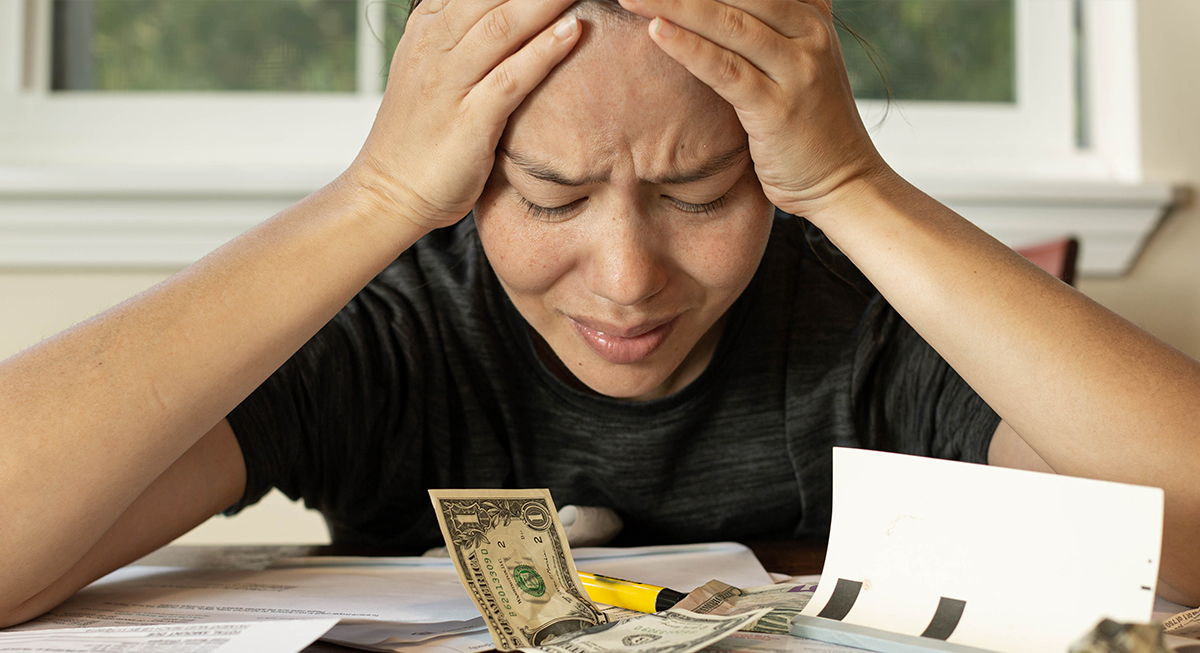 When you're trying to get out of debt, one of the big recommendations is to get rid of your credit cards and only use a debit card if you have to use plastic at all. After all, it's harder to get into debt if you can't spend money you don't have, right? But is it wise to choose a debit card? Should you use a credit card or debit card?
When you're trying to get out of debt, one of the big recommendations is to get rid of your credit cards and only use a debit card if you have to use plastic at all. After all, it's harder to get into debt if you can't spend money you don't have, right? But is it wise to choose a debit card? Should you use a credit card or debit card?
Benefits and Downsides to Debit Cards
Debit cards are cards that allow you to draw upon the cash in your bank account, usually a checking account. While some will let you overdraft, generally speaking, if you don't have money in your account, you won't be able to do a debit transaction at a merchant. The great thing here is that you can't spend money that you don't have.
If you need to get cash, you can also use your debit card for a transaction and get cash back, rather than having to go to an ATM and possibly paying a fee.
However, there are definitely some downsides to debit cards. First, certain transactions put a larger hold on your card than what you actually spend. For example, at some gas stations, if you use your debit card at the pump, it will put a temporary hold of a specific amount on your card, then actually charge the amount you spent. But that hold can freeze some of your available money for a while.
You also don't get the rewards benefits that come with credit cards.
But there's one big downside to debit cards that we'll discuss in a minute. First, let's look at credit cards.
Benefits and Downsides to Credit Cards
Credit cards allow you to essentially borrow from the bank to make a purchase and then you pay the bank back for that purchase. If you don't pay it on time, you will have to pay an interest charge. But if you are good at managing your budget and pay off your card every cycle, you can essentially borrow money every month without ever paying a penalty.
A great thing about credit cards is that because there are so many companies out there, there are a lot of great rewards programs available, from cash back, to credit at shops you like, to travel rewards, and there are even some that come with perks unrelated to how much you spend. I'm certainly a fan of getting paid to shop, so rewards cards are right up my alley.
Of course, the downside to credit cards is that it's easy to get into debt. Your only limit on your spending is the spending limit on your card - and I don't know about you, but my credit card spending limits are ridiculously high. If I spent like that in a month, I'd be hard pressed to pay it off. And that's when the interest starts compounding.
But the biggest benefit to credit cards is the biggest downside to debit cards
Most Important - Fraud
To me, the most important benefit to credit cards has to do with fraud. Let's say your card number gets stolen, either from a website or from a card skimmer at a gas station. You aren't aware of this theft until suddenly, there is an unknown $500 charge on your account.
With a debit card, that's $500 of your money that's now been taken out of your account. Yes, the banks have fraud protection and you will probably get the money back, but for this very minute, the money's gone. What if you needed that money to pay bills? It may take some time for the fraud process to go through, so you're just stuck without your money. The banks have ten days to investigate the fraud, and that's a long time to be without your money.
With a credit card, that's $500 of the bank's money. In my experience, when I've had a fraudulent charge on my card, I can call the bank, they take it off my account while they investigate, and I'm not responsible for anything at all. The only hassle is that I have to get a new card (which you have to do with a debit card too) and change any recurring charges, but that's minor as compared to potentially being without my money.









